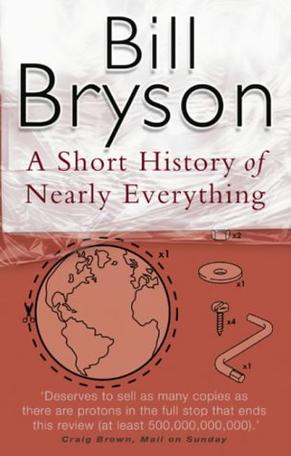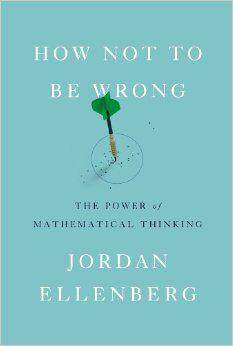-

A Short History of Nearly Everything
-

Bossypants
Before Liz Lemon, before "Weekend Update," before "Sarah Palin," Tina Fey was just a young girl with a dream: a recurring stress dream that she was being chased through a local airport by her middle-school gym teacher. She also had a dream that one day she would be a comedian on TV. She has seen both these dreams come true. At last, Tina Fey's story can be told. From her youthful days as a vicious nerd to her tour of duty on Saturday Night Live ; from her passionately halfhearted pursuit of physical beauty to her life as a mother eating things off the floor; from her one-sided college romance to her nearly fatal honeymoon -- from the beginning of this paragraph to this final sentence. Tina Fey reveals all, and proves what we've all suspected: you're no one until someone calls you bossy. ( Includes Special, Never-Before-Solicited Opinions on Breastfeeding, Princesses, Photoshop, the Electoral Process, and Italian Rum Cake!) -

How Not to Be Wrong
The Freakonomics of math—a math-world superstar unveils the hidden beauty and logic of the world and puts its power in our hands The math we learn in school can seem like a dull set of rules, laid down by the ancients and not to be questioned. In How Not to Be Wrong, Jordan Ellenberg shows us how terribly limiting this view is: Math isn’t confined to abstract incidents that never occur in real life, but rather touches everything we do—the whole world is shot through with it. Math allows us to see the hidden structures underneath the messy and chaotic surface of our world. It’s a science of not being wrong, hammered out by centuries of hard work and argument. Armed with the tools of mathematics, we can see through to the true meaning of information we take for granted: How early should you get to the airport? What does “public opinion” really represent? Why do tall parents have shorter children? Who really won Florida in 2000? And how likely are you, really, to develop cancer? -

Hyperbole and a Half
-

China Goes Global
Most global citizens are well aware of the explosive growth of the Chinese economy. Indeed, China has famously become the "workshop of the world." Yet, while China watchers have shed much light on the country's internal dynamics--China's politics, its vast social changes, and its economic development--few have focused on how this increasingly powerful nation has become more active and assertive throughout the world. In China Goes Global, eminent China scholar David Shambaugh delivers the book that many have been waiting for--a sweeping account of China's growing prominence on the international stage. Thirty years ago, China's role in global affairs beyond its immediate East Asian periphery was decidedly minor and it had little geostrategic power. Today however, China's expanding economic power has allowed it to extend its reach virtually everywhere--from mineral mines in Africa, to currency markets in the West, to oilfields in the Middle East, to agribusiness in Latin America, to the factories of East Asia. Shambaugh offers an enlightening look into the manifestations of China's global presence: its extensive commercial footprint, its growing military power, its increasing cultural influence or "soft power," its diplomatic activity, and its new prominence in global governance institutions. But Shambaugh is no alarmist. In this balanced and well-researched volume, he argues that China's global presence is more broad than deep and that China still lacks the influence befitting a major world power--what he terms a "partial power." He draws on his decades of China-watching and his deep knowledge of the subject, and exploits a wide variety of previously untapped sources, to shed valuable light on China's current and future roles in world affairs. -

Time